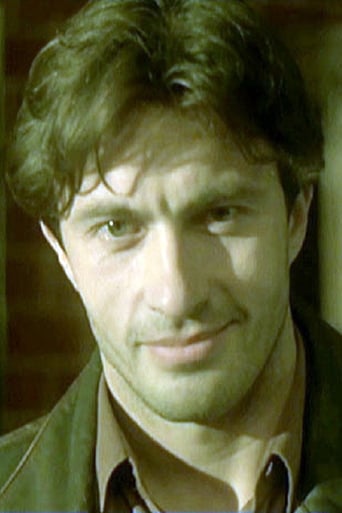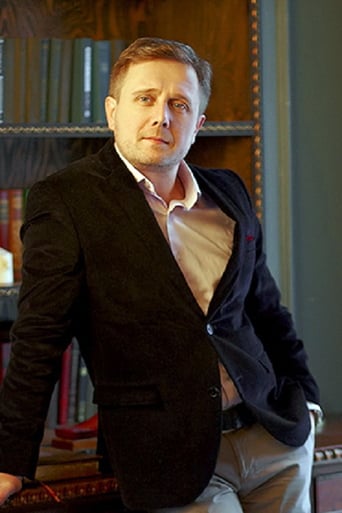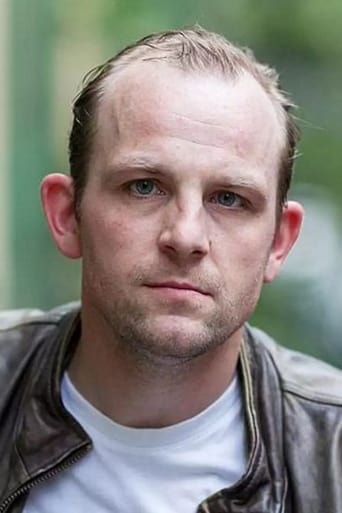Armand
about love, choices, past and future. about life nuances and forms of crucification. about freedom and levels of sacrifice. about duty and need to bee more than shadow. about truth and father. son is only his part. behind words, in essence of feelings, on crumbs of questions. but snow covers all. as last song. or birth of a full solitude. a movie. Russian in every cell. bitter, warm, delicate, melancholic, simple, a declaration about small fragments who gives sense of day, space or room.beautiful in a cruel form, profound in direct mode.so many nuances and just a single seed. so impressive and strange. it looks like a flower and, in fact, can be a fruit.because movie is more than pictures of a complicated relationship. meditation about blood and lost, it is ash rain front of close window.
Jonathon Kim
I've seen this film a week ago, it still lives on my mind. It was a beautiful cinematic experience. It was a modern language of Father & Son relationship, by only through cinematography. It was a sensational work, brave enough to starting off with the scene of physical bonding between 2 males (Not homosexual, it is purely artistic expression). How long we've been neglecting the fundamental love between Father & Son. While we are pretty much focused on Mother & Son relationship(Blame Proust for that matter).It could have some elements can be analyzed as a homosexual content but it is purely how much we are exposed too much and damaged by cultural sensitivity in sexual content in the normal, pornographic movie and lost its pure sense to enjoy art. So objection to all other viewer's seen this movie as homo-erotic movie, the see it again how this is all well portrayed in poetical way.How two are created their own world under the rooftop apartment under the frozen Russian sky, based on father's full sacrifice for his only son,through his agony as an adolescent young boy who is still not fully grown up as an adult, forming 'love','freindship' and 'independency', yet but still going under.There are sub-contents such as 'male-female' relationship, which are totally based on emotion and built on the sexual difference and desire. Also there is a crash between 'musculinity' and 'sensuality'. Also, of course 'agony' as lover, and who need to separate themselves from the love to achieve its true 'love' statues.The camera works and metaphors are the extreme beauty of this movie. The close-ups of actors are exploring emotions. Sometimes not quite in the center of the angle demonstrates their unsettled moods.Also the metaphors such as 'wooden bridge', 'football' and 'wrestling' etc, all deliberately building up the story masterfully.The music contribute those fiercely beautiful sadness into the movie, and it also reflects their sensuality at the same time.Men's world is not full of 'muscline' but also there are so much depths in it, as shown here in the movie. Father loves son and son does same. But they need to separate as to grow and give.I still not sure if there are any mythology injected here, but it's all my guess, so fill me in.It is a sensation, in its subject matter and also in depth as an art film. Not many films in decent years has passed beyond the expectation in how to tell a story. This film is a proved evidence of what film could achieve a state of art.
Chris Knipp
Alexandr (Russian Ark) Sokorov's Father and Son (Otets y sin) – wow! What a beautiful, dreamlike, homoerotic film, and also what a wildly self-indulgent one! A beefy man (Andrei Schetinin), a soldier, we're told, who smiles a lot and looks like Farley Granger (his acting seems to consist mostly of smiling), has a son, Aleksei (Aleksei Neymyshev), who looks like his younger brother but has broader shoulders and an even more spectacularly defined body, and who is studying medicine in military school. The classes seem to consist of manly tussling in camouflage gear. The film begins with a manly tussle -- of son and dad, naked in a bed, filmed abstractly, showing only parts of the body in grainy low light, like the lovemaking scene of the French model and the Japanese architect in the sand at the opening of Resnais' Hiroshima mon amour. Everything in Father and Son is seen in soft focus through a pale amber/gold filter. Everything is beautiful and unreal.
The director has declared himself shocked and irritated by our feeling that the content is homoerotic, and therefore incestuous. There are cultural differences here: one remembers the Russian soldiers in Cartier-Bresson's Fifties photo holding hands in a museum. Americans are over-touchy about homoeroticism, none the less so if they're gay, and one can't question Sokorov's assertion that for him, this is a poem about parental relationships along male lines, about the son's need to break away on his own and become a man, and nothing at all about the homoerotic. The beautiful tussling bodies and the two almost clone-like men are meant innocently as ways of showing intimacy poetically and visually. Sokorov is an avantgardist, and it's perhaps a bit of an accident that his previous film, Russian Ark, became so wildly popular with the non-Russian art house crowd. Somehow the technical feat of the single take and the variety, color, and prettiness of the images endlessly unfolding in Russian Ark rendered it more palatable to a general audience than usual. His stylistic methods generally demand great patience and openness from an audience. But Father and Son grows on one. It may seem bland, boring, incomprehensible at first, but eventually, if you let it, if you absorb its language and give in to its mood, it works its magic. The movie also has a timeless quality. It may evoke Eisenstein or Cocteau. Its Lisbon setting, also magical, is nowhere and everywhere, a place of the imagination that could be Russia, or Europe, or Baltimore in the Fifties.
Father and son apparently have lived together in a certain isolation for a long time. Sokorov creates his own space. Out of the dark apartments the men leap across a board onto the adjoining roof, where a friend of the son also comes out. The men jump on the board with athletic abandon. They could be gymnasts or ballet dancers, so great is their agility. There's also something incredibly manly about their voices as they talk in low voices in the Russian tongue (which I don't know at all); this effect also was created in Vozvrashchnenie (The Return, by Andrei Zvyagintsev), another recent Russian film that had its own unique mood and look. You walk out of the theater listening to American voices and they sound squeaky and puerile. It's not so important what they're saying; the literal meaning isn't significant. It's a kind of music, and it's accompanied by a muted soundtrack of classical music by Sergei Moshkov that works another kind of suble spell with its hints and portents. (The sound track is unique.) This could be a silent film. The focus is intensely on the visual. The cinematography by Aleksandr Burov is beautiful. There is a sequence of scenes, but very little that can be described as a story line. There's a neighbor and friend of Aleksei's, Sasha (Aleksandr Razbash), whose father has disappeared (a rhyming and contrasting subplot). He and Aleksei (the son) go down into town and take a long tram ride. In this uneventful film, that tram ride is a big deal: it's the main event, in a way, and the dreamlike, gorgeous photography gives the ride an unforgettable quality. Aleksei and his friend, and Aleksei and his father, stand so close together you think they're going to kiss each other. There's lots of manly affection here: it really is manly, even if it takes you a while to grasp that. Aleksei also has a girlfriend and he breaks up with her because she has acquired a mysterious older boyfriend, although he has just dreamed of their having a child. Abstractly, in these details, the idea of fatherhood and of the intervention of a father in the life of a son are alluded to. The girlfriend is a bit unworthy in this macho film. She seems a pinched little girl like a beggar in a Charlie Chaplin movie. These details can only be sketched in because that's the way they are. When one sees Father and Son one realizes that the plotlessness of Russian Ark wasn't specific to that `story,' but Sokorov's usual modus operandi.The pretty homoerotic sequences in Father and Son recall Derek Jarman's arty and lovely but repetitive dramatizations of Shakespeare's male-love sonnets in The Angelic Conversation(1985) -- except here there is no textual basis, so the movie's relatively rudderless, but also flows from sequence to sequence more seamlessly. Though the message, if any, is that father-son love is a wonderful thing, there's also the son's fatalistic remark, ''A father's love crucifies, and a loyal son accepts crucifixion.''
It's hard to tell at times if Sokorov's film is a big snooze or a beautiful reverie. Due to the plotlessness and the glacial pace, this can hardly be expected to catch on with mainstream audiences. Father in Son is best appreciated not as a narrative but a visual poem. It takes you into another world -- a world you may find alien and yet not want to leave.
This is part of a trilogy. There has been Mother and Son, now this, and there will be Two Brothers and a Sister.



